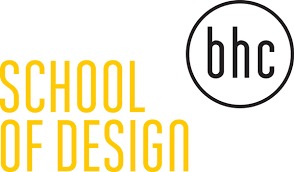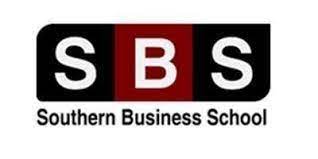Differences Between a Diploma Pass and Bachelor’s Pass – A Detailed Guide
In South Africa, students face an important decision when they finish their Grade 12 or matriculation exams: should they pursue a diploma or a bachelor’s degree? This decision is often influenced by the type of pass students receive after their matriculation results are released. Understanding the differences between a diploma pass and a bachelor’s pass is crucial for students as it will determine the kind of tertiary education they can access.
In this article, we will explore the key differences between the Diploma Pass and the Bachelor’s Pass in South Africa, explaining what they mean, the requirements for each, and how they affect your future study options.
What is a Diploma Pass?
A Diploma Pass is one of the types of passes students can receive after completing their matriculation exams (Grade 12) in South Africa. This pass indicates that the student has met the minimum requirements to pursue a diploma at a public university, TVET College, or other accredited institutions.
Requirements for a Diploma Pass:
To achieve a Diploma Pass, students need to meet certain criteria, which are set by the Department of Basic Education in South Africa. These include:
- Pass 4 of the 7 subjects:
- Students must pass at least 4 of their 7 subjects at the National Senior Certificate (NSC) level.
- These 4 subjects must include the Home Language and at least one other language.
- Minimum Marks:
- You need to achieve a minimum of 40% in the Home Language subject.
- At least 40% in 4 other subjects.
- A minimum of 30% in two other subjects.
- Total Mark Requirements:
- The overall mark required for a Diploma Pass is at least 50%.
- Students must ensure that they meet the minimum requirements in the individual subjects to qualify for a diploma pass.
What Can You Do with a Diploma Pass?
A Diploma Pass provides students with access to study certain diploma courses at a university or a TVET college. Some of the courses you may pursue with a diploma pass include:
- Engineering
- Information Technology (IT)
- Business Studies
- Social Sciences
- Health Sciences (in some cases)
Diploma courses typically take around 3 years to complete and can help students enter the workforce earlier with a solid qualification. TVET Colleges also offer specialized courses in fields like hospitality, plumbing, automotive mechanics, and electrical engineering.
What is a Bachelor’s Pass?
A Bachelor’s Pass is a higher level of achievement compared to the Diploma Pass and is the required pass for students wishing to pursue a Bachelor’s Degree at a university. A Bachelor’s Pass indicates that the student has met the criteria necessary for admission into a degree program at a university.
Requirements for a Bachelor’s Pass:
The Bachelor’s Pass is harder to achieve than the Diploma Pass and has stricter requirements:
- Pass 4 of the 7 subjects:
- Similar to the Diploma Pass, students must pass at least 4 subjects, including their Home Language and another language.
- Higher Marks for Admission:
- To achieve a Bachelor’s Pass, students need to score 50% or more in their Home Language.
- Students must also have 50% or more in 4 other subjects.
- A minimum of 30% in two subjects is allowed (but it’s better to exceed 30% in all subjects).
- Total Mark Requirements:
- The overall mark required for a Bachelor’s Pass is typically 60%, though this can vary depending on the subject and university.
- Subject Specific Requirements:
- Some universities may require higher marks in certain subjects (especially if the student is applying for a competitive program like Engineering or Medicine).
- The student must meet the minimum subject requirements set by the university for the specific course they want to study.
What Can You Do with a Bachelor’s Pass?
A Bachelor’s Pass opens the door to degree programs at a university. A Bachelor’s Degree is often required for students wishing to enter higher-paying professions and leadership positions. Some common Bachelor’s degree programs include:
- Medicine
- Law
- Engineering
- Architecture
- Commerce (Business, Accounting, Economics)
- Arts
- Science
A Bachelor’s degree generally takes 3-4 years to complete, and students who perform well in their degree program may have the option to pursue postgraduate studies (such as Honours, Master’s, or Doctoral degrees).
Key Differences Between a Diploma Pass and a Bachelor’s Pass
Here’s a breakdown of the key differences between a Diploma Pass and a Bachelor’s Pass:
|
Criteria |
Diploma Pass |
Bachelor’s Pass |
|
Minimum Marks |
At least 40% in the Home Language and other 4 subjects |
At least 50% in Home Language and other 4 subjects |
|
Overall Pass Rate |
Minimum overall score of 50% |
Minimum overall score of 60% |
|
Access to Tertiary Education |
Access to diploma programs at university or TVET colleges |
Access to degree programs at universities |
|
Specific Subject Requirements |
Must pass 4 subjects, with 30% in 2 subjects |
Must pass 4 subjects, with specific subject criteria for some programs |
|
Typical Duration |
3 years for diplomas |
3-4 years for bachelor’s degrees |
|
Career Prospects |
Entry-level positions in specialized fields |
Professional roles in fields like medicine, law, engineering, etc. |
How Does the Type of Pass Affect University Admission?
Universities in South Africa typically use the type of matric pass (Bachelor’s or Diploma) to determine whether a student is eligible for degree programs or diploma programs. Students with a Bachelor’s Pass are eligible for a broader range of university degree programs, which offer more specialized and potentially higher-paying career opportunities.
On the other hand, students with a Diploma Pass are generally restricted to pursuing diploma programs, which may offer a more practical and hands-on approach to education. While diploma programs may be completed in less time and with fewer entry requirements, they still provide excellent opportunities in fields like engineering, IT, business, and health sciences.
Factors That Can Influence University Admission Beyond Matric Pass
Even if you achieve a Bachelor’s Pass, there are several factors that can affect whether you’re accepted into a university program:
- Minimum Entry Requirements:
- Some degree programs, particularly competitive ones like medicine, engineering, or law, have strict subject-specific requirements.
- National Benchmark Tests (NBTs):
- Certain universities in South Africa require students to write National Benchmark Tests (NBTs) to assess their academic readiness for university. NBTs are especially common for competitive fields like medicine or engineering.
- NSC Points:
- Universities also consider your NSC points (calculated based on your final marks). For a Bachelor’s Pass, you need to achieve a minimum of 26 points (this varies by program), while for a Diploma Pass, the requirement might be lower.
- Specific Program Requirements:
- Some courses have specific entry requirements like higher marks in mathematics or science for fields such as engineering, medicine, or architecture.
Understanding the differences between a Diploma Pass and a Bachelor’s Pass is critical for planning your future. If you have a Bachelor’s Pass, you’re eligible to apply for university degree programs, opening doors to many career opportunities. On the other hand, a Diploma Pass is sufficient for pursuing diploma programs at universities or TVET colleges, which also offer valuable career pathways in more technical or vocational fields.
Regardless of the pass you receive, it’s important to explore your options and plan your future studies carefully. Ensure that you meet the admission requirements of your desired program and seek advice if you’re unsure about the best course of action.
Good luck with your educational journey, and remember that no matter what type of pass you receive, there are always pathways available to help you achieve your career goals.




